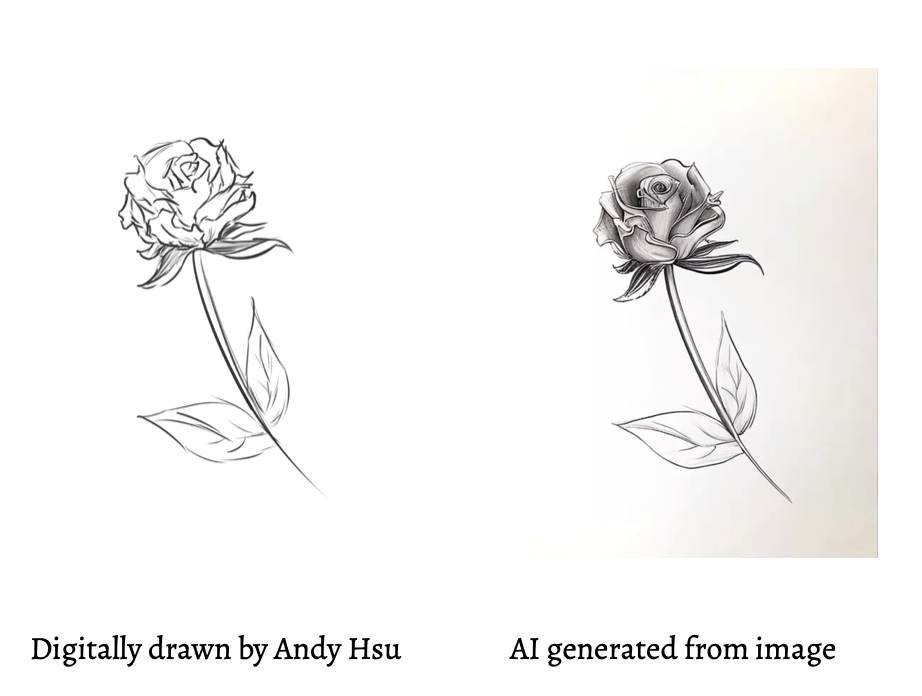Images from author.
In recent years, artificial intelligence, more often referred to as AI, has made its way into our homes and workplaces. Basically, AI is everywhere. However, as the popularity of AI rises, concerns about the ethics and appropriateness of using this technology have been raised. In education, this debate has focused on the use of Chat GPT, but the topic of artificially generated art has also been a central point of discussion.
Not long ago, in 2022, when AI image-generating tools became more advanced, protests erupted online. Protestors argue that they cannot endorse the usage of AI art because it “takes pieces from many artists and puts them together to create new art.” Artists from all over the world have threatened to permanently abandon websites that allow AI-generated images. These events stirred up mixed reactions from artists across creative fields and raised many questions: How do artists perceive AI art? Do they consider AI art creators to be “real artists”?
To look deeper into this question, we interviewed student artists from Washington High School. Andrew Tan, a senior at Washington, started his artistic journey when he joined the Multi Media Art Academy in his junior year. When asked if AI art created any challenges for him as an artist, he answered, “No…It doesn’t affect me personally as I usually try to draw casually.” Regarding individuals who create art using software, he expressed his view by saying they are not “real artists” as they “did not create their own art.” Andrew envisions the future of AI art as a tool that may potentially lead people towards laziness.
In another interview, student artist Andy Hsu, a freshman at Washington who has been drawing occasionally as a hobby, shared his views. Although he may have less experience in the art community, he has formed opinions on the current situation regarding AI-generated images. Andy believes that “artists may use AI as a tool for inspiration.” However, he also believes that doing so “might take away some creativity from the artist.” He expressed his disapproval of software-generated art, describing it as “deformed” and “ weird.” Similar to Andrew, Andy does not bestow the title of “artist” for those who use AI in their creation.
Overall, it is noted that the rise of artificial intelligence has made a significant impact on the creative world. Just like in many other communities, the AI art community finds itself at the center of a popular debate. Opinions vary between people on this matter, exemplified by students from Washington High School. Some individuals may remain skeptical about the use of AI-generated images and those who create art with them, fearing that it may lead to potential job losses for many artists. Others may find this software useful for inspiration, a great tool for sparking ideas for creations, or just simply believe that it is acceptable to use and take credit for what artificial intelligence has created for them.
Although the future of what is to come for AI art remains uncertain, the discussions among these students from Washington High School have brought awareness regarding the status of AI artists and artists. Technology will undoubtedly continue to evolve, and the discussion surrounding the ethics of artificial art will persist. Nevertheless, the exploration of the creative landscape will remain ongoing.
Jenny Hsu is a senior at Washington High School, born in Xian, China, and raised in Fremont, California. This is her first year at The Hatchet. She is interested in covering topics related to music and psychology. Jenny has diverse interests including music, band, anime, and art. In the future, she plans on attending university and potentially majoring in forensics.



Important discussion you have launched here. Let’s keep it going.